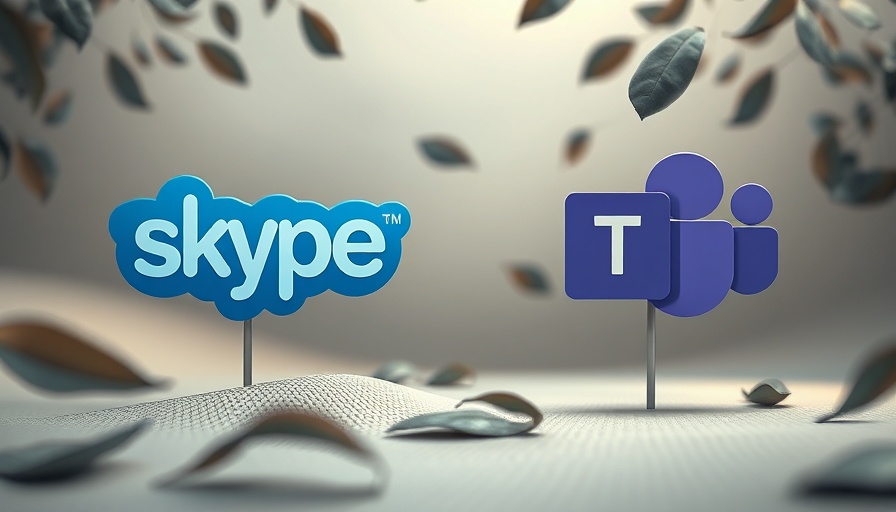
The End of an Era: Microsoft Phasing Out Skype
In unprecedented news for communication technology, Microsoft has announced it will discontinue Skype, directing users to its growing platform, Microsoft Teams. This transition will take effect on May 5, 2025, marking the end of Skype's 22-year journey from an innovative startup to a staple in virtual communication.
From Innovation to Obsolescence: The Story of Skype
Launched in 2003, Skype revolutionized how the world communicated, allowing users to make voice and video calls over the internet. At its peak, the platform boasted more than 560 million registered accounts. Microsoft's acquisition of Skype in 2011 for a staggering $8.5 billion signaled a belief in its prospective growth. However, as time passed, competition intensified, particularly from platforms like Zoom, FaceTime, and WhatsApp.
The Rise of Teams: A Move to Modernize Communications
Microsoft's pivot towards Teams is a strategic decision fueled by evolving consumer preferences for integrated communication solutions. Teams has surged in popularity, proving to be more than just a video conferencing tool. With over 320 million monthly active users, Teams combines messaging, file sharing, and collaboration in one platform, making it an attractive choice for businesses and consumers alike.
What This Means for Current Skype Users
Skype users will soon be given a choice to migrate their data to Teams or export it entirely. The integration promises a seamless transition, allowing users to log in to Teams using their Skype credentials, instantly gaining access to their chats and contacts. This transitional phase allows for direct communication between Skype and Teams users, ensuring a smooth handover.
Consumer Sentiment: Embracing Change or Sticking with the Old?
The sentiment surrounding Skype's closure is mixed. Longtime users may feel nostalgic as they recall the platform's capabilities in bridging long distances and connecting with loved ones. However, the vast shift towards integrated applications like Teams indicates a clear market preference.
Future Outlook: What Lies Ahead?
Microsoft's decision reflects a broader trend towards consolidation in the tech industry, wherein companies focus on maintaining fewer but more effective applications. As the world becomes increasingly reliant on online communication tools, the future of Teams appears bright. With its built-in features tailored for collaboration, Teams positions itself as the go-to platform for many businesses, potentially paving the way for innovations driven by artificial intelligence and user suggestions.
Conclusion: Acknowledging Skype's Legacy
As we bid farewell to Skype, it's important to acknowledge its role in shaping modern communication. Microsoft promises to honor users with existing Skype credits, allowing them to utilize their investments until the conclusion of their renewal cycles. This decision helps alleviate the disruptive nature of abrupt changes in technology, showcasing Microsoft’s commitment to its user base.
As Microsoft pivots to focus on Teams, the tech giant is not only adapting to consumer needs but is also shaping the future of digital communication. This shift represents an opportunity for users and businesses to rethink how they interact, collaborate, and foster relationships in a virtual world.
 Add Row
Add Row  Add
Add 




Write A Comment